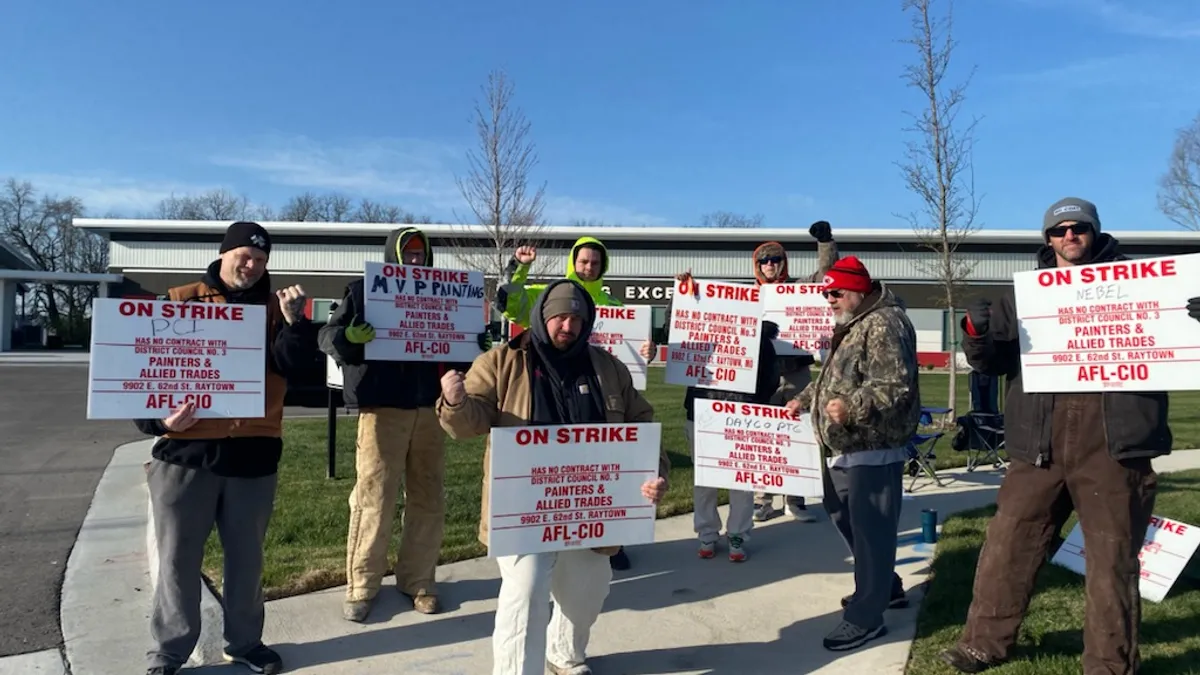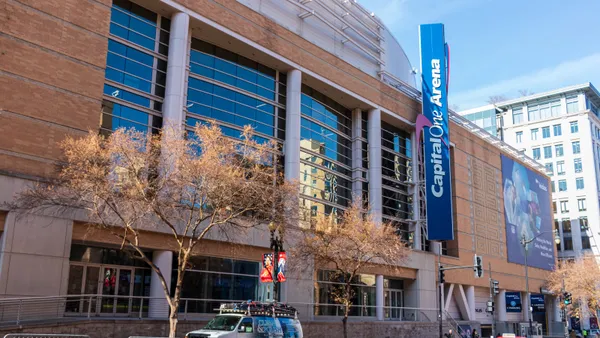Dive Brief:
- A painters' strike in Kansas City, Missouri, has ended after eight days. The 600 members of the International Union of Painters and Allied Trades Local 2012 voted by a two-thirds margin on Wednesday to accept a new contract offered by The Builders' Association, a local construction employment group, according to a release shared with Construction Dive.
- The new contract includes a 2.5% to 3% wage increase for members (depending on the trade), the highest increase since 2005, according to Jessica Podhola, government affairs and communications director for IUPAT District Council 3.
- IUPAT removed an aspect regarding residential worker rates from the contract to sweeten the deal, according to Joey Flickner, director of servicing for the union.
Dive Insight:
Months of failed negotiations over wages spurred members of the IUPAT Local 2012 to strike last week, the city's first painters' strike since 1968. The last time they got close was 22 years ago, according to Flickner.
IUPAT represents several different tradesworkers, including industrial, commercial and residential workers. On the other side of the bargaining table, The Builders' Association is a nonprofit construction trade organization and is a sister organization to the Kansas City Chapter of the AGC.
"We understand the current uncertainty of the economic climate poses challenges for many in our region," read a statement from The Builders' Association. "We look forward to continuing our work with our industry partners in building a better tomorrow and advancing the lives of people through commercial construction."
Negotiations carried late into the night Monday and picked up Tuesday, as painters, glazers, drywall installers and flooring workers walked the picket line in protest. The following day, just over a week after it began, the strike was over.
Podhola said the union was ready for a long fight, setting up a GoFundMe page and securing diapers and formulas for workers with young children. But IUPAT's strike was far shorter than others that have recently garnered national attention in the construction industry.
For over 130 days, Seattle-area Teamsters shut down the flow of concrete as they picketed, attempting to secure better wages and healthcare benefits for retirees. After entering the fifth month of the strike, drivers offered to return to work, in what the union described as a change in strategy.
"You can't keep beating a dead horse," Brett Gallagher, mixer driver for CalPortland and a member of Teamsters Local 174 bargaining committee, told Construction Dive after the strike. "We need to get moving again."
It's not uncommon for unions to use a strike to add pressure to get resolution on an issue, according to Dan Rosenberg, principal attorney at Chicago-based law firm Much Shelist.
"A strike ending is, in my experience, usually the best thing for all involved," Rosenberg said. "Both the union members and their contractor employers can go back to work."
Larger trend
The swell of support for organized labor could continue nationwide.
"We're going to see some more of those strikes as we go around the country, especially in markets where the unions are trying to gain strength," Rosenberg said.
IUPAT's strike is the latest news-grabber, as support for organized labor swells. On April 1, workers at a Staten Island, New York, Amazon warehouse voted successfully to unionize, a major win for the organized labor movement.
Now, workers at an Apple Store at New York's Grand Central Terminal are trying to form a union. Both of those efforts followed several individual Starbucks stores that successfully voted to form unions.













